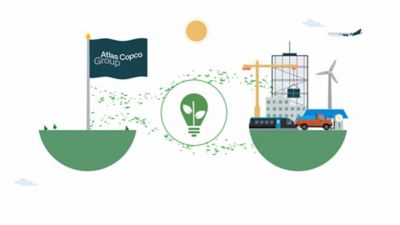Episode 16 - Psychological safety
In a rapidly changing world, continuous product and process innovation are essential elements of sustainable organizational performance. However, the stress of uncertainty reduces individual creativity and diminishes the drive to explore and challenge existing norms. Focusing on psychological safety as a strategic priority helps counter this tendency. Embracing "what if…" questions fosters a culture of curiosity for generating possible solutions rather than a fear of failure.
A summary of what’s included
In the latest episode of the Atlas Copco Group People Podcast, Cecilia Sandberg, SVP and Chief Human Resources Officer, and Dorna Eriksson Shafiei, Vice President of Talent & Learning, explore what psychological safety is, why it matters, and how we can all contribute to building trust-based environments for the teams we work in.
"Psychological safety is essentially about creating a team climate characterized by interpersonal trust and mutual respect, grounded in the belief that you will not be punished or humiliated for speaking up with ideas, questions, concerns, or mistakes," says Dorna.
Multiple research studies have proven that you won’t hear ideas unless people feel safe enough to say them out loud or write them down. Developing psychological safety increases the likelihood of successful innovation through intelligent risk-taking and lower fear of failure, resulting in quicker time-to-market and improved products and services.
"In an environment where people feel safe to speak up, air concerns, and admit mistakes, teams are not just more productive but also more curious and proactive because they are not afraid to challenge norms and bring unique perspectives to the table," reflects Cecilia.
Tune in and learn about psychological safety as the foundation for a thriving and high-performing workplace and how we all play a role in creating that for each other!




